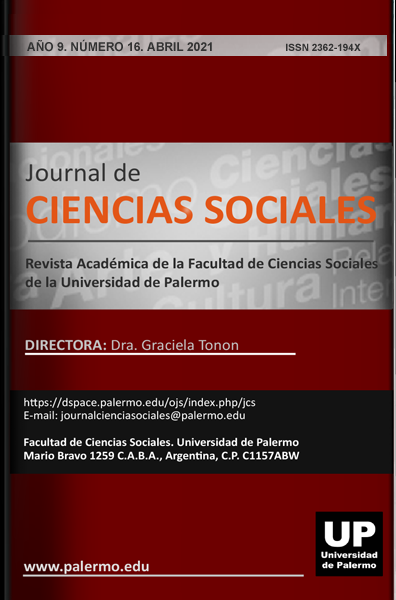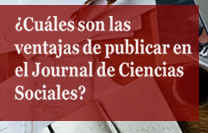Desafíos y oportunidades para el tratamiento de los trastornos de la conducta alimentaria en niños y adolescentes en el contexto de la pandemia
Resumen
El bienestar físico y mental de los niños/adolescentes está siendo afectado durante la pandemia mundial por COVID-19 tanto por la propia enfermedad como por las medidas necesarias para contener la propagación de la infección. Una pandemia es una combinación de factores estresantes que puede precipitar o agravar trastornos mentales previos. El aislamiento/restricción social prolongado, la modificación de rutinas diarias, los efectos emocionales (ansiedad, incertidumbre, frustración, miedo) y el mal uso de redes sociales pueden precipitar el inicio de los trastornos de alimentación en personas vulnerables. Además, y por motivos similares, se ha observado un claro empeoramiento de los pacientes con trastornos de la conducta alimentaria durante la pandemia y un importante incremento de las hospitalizaciones por anorexia nerviosa durante el año 2020. Se plantean al menos dos retos para los niños/adolescentes con riesgo de sufrir TCA mientras permanezca la pandemia: por un lado, gestionar y disminuir los factores de riesgo de TCA asociados a la pandemia y por otro mejorar los factores de protección especialmente la accesibilidad a los tratamientos y garantizar el tratamiento más eficaz especialmente a los pacientes más graves. Las estrategias de afrontamiento del aislamiento social y la incertidumbre, así como el ajuste de los tratamientos existentes (ej. hospital de día y hospitalización) y el pleno desarrollo de la teleterapia combinada constituyen oportunidades para garantizar la continuidad de cuidados en tiempos de pandemia.
Descargas
Citas
Anastasiadou, D., Folkvord, F., Brugnera, A., Cañas Vinader, L., Serrano Troncoso, E., Carretero Jardi, C., Linares Bertolini, R., Muñoz Rodríguez, R., Martínez Nuñez, B., Graell Berna, M., Torralbas-Ortega, J., Torrent-Solà, L. Puntí-Vidal, J., Carrera Ferrer, M., Muñoz Domenjó, A., Diaz Marsa, M., Gunnard, K., Cusido, J. Arcal Cunillera, J. y Lupiañez-Villanueva, F. (2020). An mHealth intervention for the treatment of patients with an eating disorder: A multicenter randomized controlled trial. International Journal of Eating Disorders, 53(7), 1120-1131. https://doi.org/10.1002/eat.23286
Backhaus, A., Agha, Z., Maglione, M. L., Repp, A., Ross, B., Zuest, D. Rice-Thorp, N. M., Lohr, J. y Thorp, S. R. (2012). Videoconferencing psychotherapy: a systematic review. Psychological Services, 9(2), 111–131. https://doi.org/10.1037/a0027924
Brazendale, K., Beets, M. W., Weaver, R. G., Pate, R. R., Turner-McGrievy, G. M., Kaczynski, A. T., Chandler, J. L. Bohnert, A. y von Hippel, P. T. (2017). Understanding differences between summer vs. school obesogenic behaviors of children: the structured days hypothesis. International Journal of Behavioral Nutrition and Physical Activity, 14(1), artículo 100. https://doi.org/10.1186/s12966-017-0555-2
Brooks, S. K., Webster, R. K., Smith, L. E., Woodland, L., Wessely, S., Greenberg, N. y Rubin G. J. (2020). The psychological impact of quarantine and how to reduce it: rapid review of the evidence. Lancet, 395(10227), 912-920. doi: 10.1016/S0140-6736(20)30460-8.
Cooper, M., Reilly, E. E., Siegel, J. A., Coniglio, K., Sadeh-Sharvit, S., Pisetsky, E. M. y Anderson, L. M. (2020). Eating disorders during the COVID-19 pandemic and quarantine: an overview of risks and recommendations for treatment and early intervention. Eating Disorders, 9,1-23. doi: 10.1080/10640266.2020.1790271.
Ezpeleta, L., Navarro, J. B., de la Osa, N., Trepat, E. y Penelo E. (2020). Life conditions during COVID-19 lockdown and mental health in Spanish adolescents. International Journal of Environmental Research and Public Health, 17(19), 7327. doi: 10.3390/ijerph17197327.
Fegert, J. M., Vitiello, B., Plener, P. L. y Clemens, V. (2020). Challenges and burden of the Coronavirus 2019 (COVID-19) pandemic for child and adolescent mental health: a narrative review to highlight clinical and research needs in the acute phase and the long return to normality. Child and Sdolescent Psychiatry and Mental Health, 14, 20. doi: 10.1186/s13034-020-00329-3.
Golberstein, E., Gonzales, G. y Meara, E. (2019). How do economic downturns affect the mental health of children? Evidence from the National Health Interview Survey. Health Economics, 28(8), 955-970. doi: 10.1002/hec.3885.
Graell, M., Morón-Nozaleda, M. G., Camarneiro, R., Villaseñor, Á., Yáñez, S., Muñoz, R. … Faya, M. (2020). Children and adolescents with eating disorders during COVID-19 confinement: Difficulties and future challenges. European Eating Disorders Review, 28(6), 864-870. doi: 10.1002/erv.2763.
Guessoum, S. B., Lachal, J., Radjack, R., Carretier, E., Minassian, S., Benoit, L. y Moro, M. R. (2020). Adolescent psychiatric disorders during the COVID-19 pandemic and lockdown. Psychiatry Research, 291, 113264. doi: 10.1016/j.psychres.2020.113264.
Romero, E., López-Romero, L., Domínguez-Álvarez, B., Villar, P. y Gómez-Fraguela, J. A. (2020). Testing the effects of COVID-19 confinement in Spanish children: The role of parents' distress, emotional problems and specific parenting. International Journal of Environmental Research and Public Health, 17(19),6975. doi: 10.3390/ijerph17196975.
Rodgers, R. F., Lombardo, C., Cerolini, S., Franko, D. L., Omori, M., Fuller-Tyszkiewicz, M., Linardon, J., Courtet, P. y Guillaume, S. (2020). The impact of the COVID-19 pandemic on eating disorder risk and symptoms. International Journal of Eating Disorders, 53(7), 1166-1170. doi: 10.1002/eat.23318.
Shingleton, R. M., Richards, L. K. y Thompson-Brenner, H. (2013). Using technology within the treatment of eating disorders: a clinical practice review. Psychotherapy, 50(4), 576‐582. https://doi.org/10.1002/eat.23318
Sproch, L. E. y Anderson, K. P. (2019). Clinician-delivered teletherapy for eating disorders. The Psychiatric Clinics of North America, 42(2), 243-252. doi: 10.1016/j.psc.2019.01.008.
Waller, G., Pugh, M., Mulkens, S., Moore, E., Mountford, V. A., Carter, J., Wicksteed, A., Maharaj, A., Wade, T. D, Wisniewski, L., Farrell, N. R, Raykos, B., Jorgensen, S., Evans, J., Thomas, J. J., Osenk, I., Paddock, C., Bohrer, B., Anderson, K., Turner, H., Hildebrandt, T., Xanidis, N. et al. (2020). Cognitive-behavioral therapy in the of coronavirus: Clinician tips for working with eating disorders via telehealth when face-to-face meetings are not possible. International Journal of Eating Disorders, 53(7), 1132-1141. doi: 10.1002/eat.23289.
Wang, G., Zhang, Y., Zhao, J., Zhang, J., y Jiang, F. (2020). Mitigate the effects of home confinement on children during the COVID-19 outbreak. Lancet, 395(10228), 945–947. doi: 10.1016/S0140-6736(20)30547-X
Zimmermann, P. y Curtis, N. (2020). Why is COVID-19 less severe in children? A review of the proposed mechanisms underlying the age-related difference in severity of SARS-CoV-2 infections. Archives of Disease in Childhood, 106(5), 429-439. http://dx.doi.org/10.1136/archdischild-2020-320338
Los autores conservan los derechos sobre su obra garantizando a esta revista el derecho de primera publicación, comprometiéndose a citar el Journal de Ciencias Sociales como referencia de la publicación original.
Los trabajos publicados en el Journal se publican bajo los términos que se indican en la Licencia de Creative Commons con la Atribución 4.0 Internacional (CC BY 4.0).




























